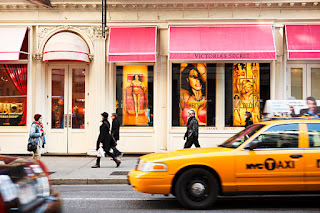Victoria’s Secret's Downfall: Lack of Diversity and the Reimagined Fashion Show That Aims to Save the Brand
by Ally McLaren
For 23 years, Victoria's Secret dazzled the world with its extravagant annual Fashion Show, but in 2019, the event was abruptly canceled.
This decision, however, wasn't entirely surprising. The brand had faced mounting criticism for its lack of diversity, which contributed to declining ratings and scandals behind the scenes.
Now, Victoria's Secret is attempting to reinvent itself with a new fashion show concept. Will this be enough to save the brand from its troubled past?
The Victoria's Secret Fashion Show was once renowned for its bejeweled bras, angel wings, and A-list performances. Despite thus, its popularity waned due to the brand's refusal to embrace diversity.
Public outcry intensified in 2018 when the show's organizer, Edward Razek, made controversial remarks about not featuring plus-size or transgender models, suggesting it didn't align with the brand's fantasy image.
Moreover, revelations about the brand's former CEO's ties to Jeffrey Epstein further tarnished Victoria's Secret's reputation.
Victoria's Secret cultivated a fantasy that buying their products could make anyone look like a Victoria's Secret Angel. An illusion that shattered when it became evident that the brand predominantly showcased thin, white models. Instead of addressing the lack of diversity, the decision was made to cancel the show altogether.
In the wake of Victoria's Secret's downfall, inclusive fashion shows like Rihanna's Savage X Fenty emerged. Since its launch in 2018, Savage X Fenty has celebrated models of all sizes, ages, skin tones, and genders, including trans individuals, nonbinary people, and drag queens. The success of Savage X Fenty, with its emphasis on representation and glamourization, demonstrated the audience's desire for inclusivity on a grand scale.
Victoria's Secret is attempting a comeback with its "Victoria's Secret World Tour." The brand plans to transform its fashion show into a feature-length film that merges fashion, film, art, and culture. The film will follow VS20, a group of 20 global creatives who will curate fashion from Bogota, Lagos, London, and Tokyo. The result will be an internationally streamed fashion show and a live fashion event featuring Victoria's Secret's original designs.
The reimagined show presents an opportunity for diverse global designers to shine and showcases a new generation of talent from different cultures. It signifies a positive step for Victoria's Secret, using its platform to embrace a fresh wave of fashion and inclusivity. However, questions remain about whether this new approach truly reflects a change in the brand's values or if it's merely an attempt to avoid diversifying body types. Exclusivity has always been Victoria's Secret's core identity, but in a landscape led by shows like Savage X Fenty, performative inclusivity alone may not be enough to rescue the brand from its troubled past.
The brand has also paired with powerhouse PR firm, Good Culture, who have stripped the company from the inside out - meaning the Victoria’s Secret board is now made up of 99% female members.
As well this, the Angels are scrapped. Their replacement? The VS Collective - partnering with reliable entrepreneurs and activists, most notably Priyanka Chopra Jonas alongside Megan Rapinoe, Adut Akech, Paloma Elsesser, Amanda de Cadenet, and Elieen Gu. Importantly,
LGBTQ model and activist Valentina Sampaio, the first transgender model to be featured in the Sports Illustrated Swimsuit Issue, is also a key player in the VS Collective.
Victoria's Secret's lack of diversity led to its downfall, but the brand is now attempting a revival with a reimagined fashion show. While this signifies progress, it remains to be seen whether Victoria's Secret is genuinely committed to promoting a more inclusive message or if it's merely a strategy to maintain its traditional ideals.
As the fashion industry shifts towards embracing diversity, Victoria's Secret must go beyond surface-level changes if it wants to reclaim its former glory and regain the trust of its audience.
Edited by Emily Duff



